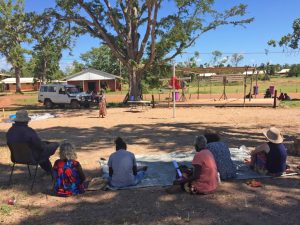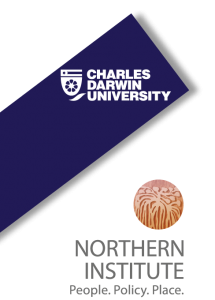Talking Strong Staying Safe
Funding: FaHCSIA: Indigenous Family Safety
Duration: October 2012 – June 2013
Location: Raminginŋ, Milingimbi, Gapuwiyak
Summary
- The aim of the TSSS was to research and develop local solutions to the issues of bullying and inappropriate use of mobile phones, Internet and social media (cyber safety) in the remote communities of Ramingining, Milingimbi and Gapuwiyak.
- Involved research and visits to communities where we conducted conversations, meetings, interviews, presentations and focus group sessions (workshops) with senior authorities, individuals, family and work groups.
- Led to increased understanding of the issues at a community level and the collaborative production of resources English and Djambarrpuyŋu for use by individuals, families and organisations, and community-based workshops.
In all communities – Local Reference Groups, Community Advisory Boards, East Arnhem Shire Offices, Clinics, Schools, Stores, Police, Night Patrol, Money Management, Radio stations, Youth Services, Youth Sport and Recreation, Stronger Families, Child Safety, PACE were interested and open to supporting cyber safety.
Elders, senior community members and other Yolŋu adults we spoke to were open and eager to know more and understand the issues and to support both young and older community members to use mobile phones, the Internet and Social Media responsibly.
During the first round of visits we focused largely on making the story about cyber safety known through: talking first with senior people; utilising already established relationships with community members; presentations and focus groups (mini-workshops), meetings, interviews and conversations with individuals, family groups and work groups.
Cyber safety issues were seen as part of wider problems of kids not respecting family and Yolŋu rom, gurruṯu and right ways to behave; breakdown in discipline; neglect; violence etc – creating bigger cyber drama.
Cyber safety was viewed foremost as a citizenship issue that needs to be dealt with first at the family and Yolŋu governance levels, which are reinforced and supported by organisations, services and western systems of governance, through targeted policy, practice and programs.
Individuals, families and organisations requested accessible information and resources about cyber safety in both English and Djambarrpuyŋu that they could use as a basis for communicating about this issue with their children, family and workers and supporting them to manage cyber safety issues when they arose. These resources are being developed with community members and organisations and are likely to include:
- Booklet – using graphics, English and Djambarrpuyŋu, positive messages
- Poster/s – based on the booklet
- Website – simple, in English and Djambarrpuyŋu, with information, help, downloadable resources (booklets, posters, videos, audio etc), links to related and useful sites and resources e.g. www.theline.gov.au, lesson plans…
- Workshops – based on the resources.


